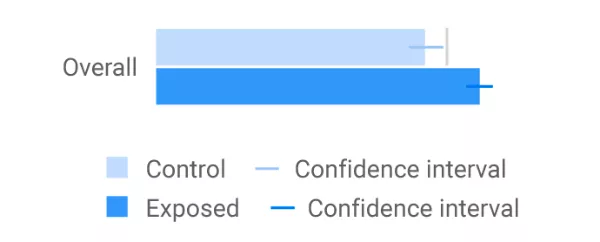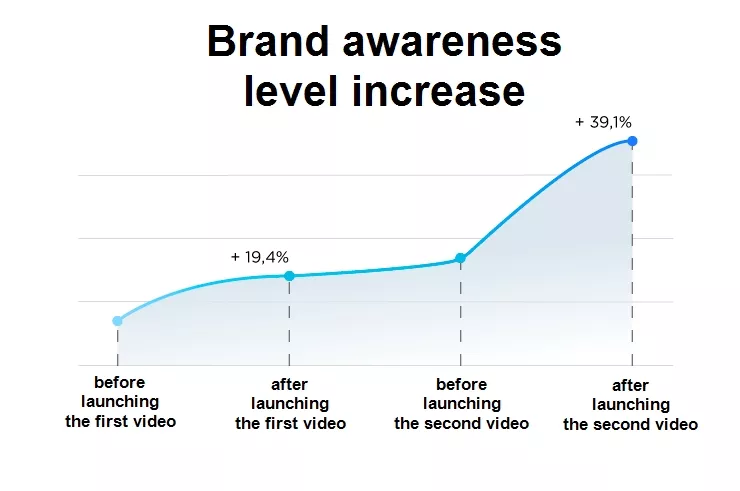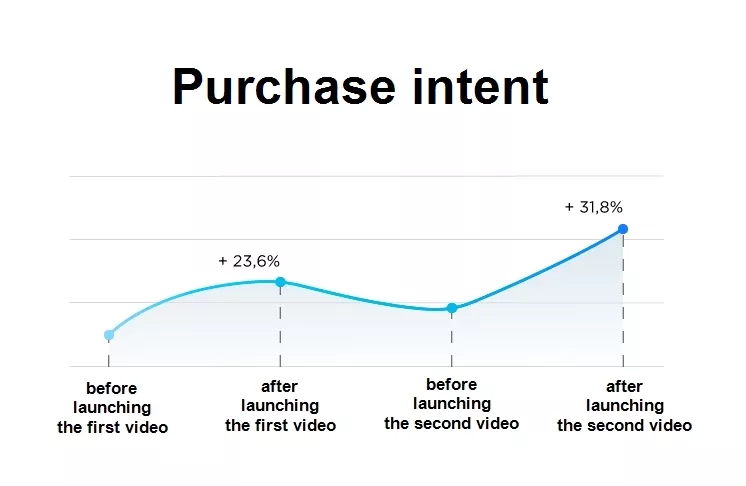Steko Success Story: Video Advertising and Brand Lift Studies Increased the Number of Leads by 176%
A strong brand image is vital in a crowded marketplace. No matter what industry you represent, effective branding enables you to stand out from your competitors and acquire new customers.
Building a brand requires a comprehensive approach that combines the brand promotion on TV, Smart TV, and contextual advertising.
Niche: Plastic-steel windows and doors.
Results: Conversion rate increased by 55.63%, the number of leads increased by 158.36%, and traffic increased by 32.64 %.
The Client
Steko specializes in manufacturing metal-plastic (PVC) constructions including windows and doors. Founded in 2005, Steko now owns 3 factories that produce over 1 mln constructions annually. The company has a number of unique selling propositions which give it an obvious advantage over its competitors:
- certified components and products;
- 10-year warranty;
- free door-to-door delivery throughout Ukraine;
- free online consultation and cost calculation.
The Challenge
- To define Steko's current position in the market with regards to:
- the level of Steko's brand awareness;
- the level of competitors' brand awareness;
- the level of customers' purchase intentions.
Answers to these questions can help us determine Steko's current position on the market and define the vector of the further branding strategy in general.
- To figure out whether brand activity has influence on the sales; if yes, in what way.
- To find ways to increase the level of brand awareness using the online source.
The Solution
We suggested the client to launch YouTube video ads and a Brand Lift study simultaneously.
We divided the whole process into three stages:
- Preparation — understanding what video is required and what message to convey.
- Campaign setup and launch, as well as optimization and statistics collection.
- Analysis and testing of new hypotheses.
Then, we repeated all three steps for a few more times with a new video each time. The goal was to identify the brand message and targeting which worked together the best.
Here are a few examples of how we adjusted ad videos and our interpretation Brand Lift study statistics. Just a heads up: branding (both online and offline) is a time-consuming and constant process, which cannot be accomplished in a month.
Searching for "weak" segments of the target audience
We launched a test video — a video about Steko's mission and advantages (i.e., unique selling propositions).
Campaigns setup
As mentioned before, our goal is branding with a focus on new users. Therefore, we created the following re-marketing audience lists to exclude from video campaigns:
- those who sent requests on the site;
- those who visited the site within the last 10/15/30 days;
- those who watched our brand videos before.
We limited the impressions frequency to increase the target audience reach.
Then, we prepared a list of negative platforms (political channels and channels for children) and topics (cartoons, entertainment, etc.)
Feel free to test your hypotheses as there is no correct answer on which topics and interests we should exclude on every project.
The targeting we used in video advertising:
- Keyword based targets.
- Interests: top interests can be found in Google Analytics report «Audiences» — «Interests» — «In-market segments». You can sort them by the number of conversions and the conversion rate.
- Similar audiences: audiences similar to your remarketing lists. For example, those who previously applied for the client’s services through the site.
- Places or relevant YouTube channels.
Important: Remember to exclude audience groups by demographics (age and gender) depending on your business.
Launching video advertising
To better meet the requests of the target audience and reduce the cost per view (CPV), we monitored statistics and also expanded the list of negative channels and topics.
Brand Lift study and campaign results
The Brand Lift report shows changes in the valuable metrics (e.g., brand awareness) after people have watched the ad. In other words, we have 1 metric with 2 values: one before and one after we launched video campaigns.
For example:
After launching the study, we received answers to all the questions and had a complete understanding of the current brand awareness level for Steko. It was necessary to understand the best direction to move in and what to emphasize in new videos. For this purpose, brand lift reports have breakdowns to demonstrate the dynamics of the estimated metric in the context of:
- gender;
- age;
- device type;
- impressions frequency.
Having analyzed data in Google Analytics and Brand Lift reports, we came to a few important strategic conclusions.
- A higher percentage of men orders products on the site. However, the level of brand awareness among women is higher.
- Steko has a low level of brand awareness among one of the age segments — a direct target audience.
- The same age segment has a low level of purchase intention.
- As a result, we hypothesized on what the optimal view frequency per user should be.
Video advertising messages: don't sell — explain
We identified the "weak" segment of the Steko audience and began to prepare messages for this particular segment (for example, men aged 35-44).
Having analyzed user behavior before purchasing, the Steko team detected a problem faced by customers; buyers found it difficult to choose a suitable window.
We assumed that new users who haven't previously bought windows chose a window based on its price. Therefore, Steko experts prepared a series of training videos that solved two problems:
- what to pay attention to when choosing windows (instructions for new users);
- the difference between high-quality and low-quality windows (the reason for a variation in prices).
This is what it looked like:
Setting up advertising campaigns
We made a few improvements in targeting settings:
- created individual segments for the male and female audience;
- segmented target audience by age.
To be more flexible in managing campaigns in terms of bidding and adjustments, we expanded the list of YouTube’s priority channels and added a custom audience aimed at specific competitors.
Based on the Brand Lift “Segmentation by frequency” report, we understood how to change the view frequency per user. We also re-analyzed the dynamics of the following metrics:
- Steko brand awareness and how it changed after each video was launched;
- the brand awareness level of main competitors in comparison with Steko's;
- the purchase intention and how it changed after each video was launched.
Example of the current promotional video:
The Results
- Cost per view in Google Ads is twice as low as the cost per view on Smart TV: 0.05 UAH in Google Ads compared to 0.1 UAH on Smart TV.
- One month after the first video launch, brand awareness level increased by 19.4%. Afterwards, we changed the video message and improved campaign targeting settings based on the Brand Lift reports. This resulted in an increase in brand awareness level by 39.1%.
- There were significant changes in the purchase intention level (readiness to buy products). After the launch of the first video, the purchase intention level increased by 23.6%. After we had launched the second one, this figure increased by 31.8%.
- Comparing the total results of the promotion period to the previous one, the results are clear.
- Conversion rate increased by 55.63%.
- СРА decreased by 26.77%.
- The number of leads increased by 158.36%.
- Traffic increased by 32.64 %.
As illustrated, the number of conversions increased, while Cost Per Acquisition was regularly decreasing.
- Comparing brand campaign results to the previous period, we can see that
the number of leads increased by 176.52% and traffic increased by 81.71%.
As the branding campaign aims to change the behavior of the target audience, its efficiency is measured by:
- the number of brand queries — the brand becomes more recognizable, and users begin to search for information about it more often;
- conversion rate — once the brand loyalty is created, the conversion rate and the average order value will increase.
Related Articles
How to Set Up Consent Mode in GA4 on Your Website with Google Tag Manager
Let's explore how to properly integrate consent mode in GA4, configure it for effective data collection, and at the same time comply with GDPR and other legal regulations
Display Advertising Effectiveness Analysis: A Comprehensive Approach to Measuring Its Impact
In this article, I will explain why you shouldn’t underestimate display advertising and how to analyze its impact using Google Analytics 4
Generative Engine Optimization: What Businesses Get From Ranking in SearchGPT
Companies that master SearchGPT SEO and generative engine optimization will capture high-intent traffic from users seeking direct, authoritative answers







